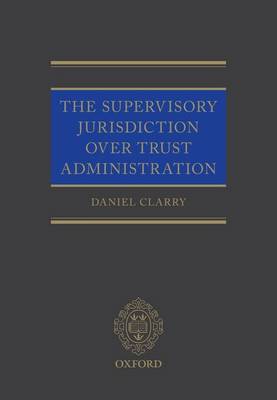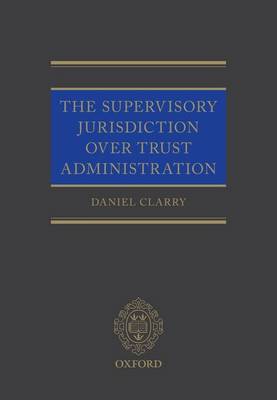
- Retrait gratuit dans votre magasin Club
- 7.000.000 titres dans notre catalogue
- Payer en toute sécurité
- Toujours un magasin près de chez vous
- Retrait gratuit dans votre magasin Club
- 7.000.0000 titres dans notre catalogue
- Payer en toute sécurité
- Toujours un magasin près de chez vous
394,95 €
+ 789 points
Description
Providing valuable insight into a relatively unexplored field, this book examines the day-to-day functioning of the supervisory jurisdiction over trust administration and distils the essential principles that guide the Court's intervention in this area. An introductory section places the supervisory jurisdiction over trust administration in its historical context, exploring its origins and evolution. Analysis of twelve judicial functions by which the court acts to facilitate the on-going performance of trusts follows, examining the general administration of trusts, court regulation of the office of trustee, securing the due administration, and supervising the non-performance, of trusts. These supervisory functions of the court are essential to any jurisdiction in the common law tradition and underscore the peculiar way in which trusts are regulated by the court throughout those jurisdictions. The interaction between the supervisory jurisdiction over trust administration and the remedial jurisdiction of the Court to award equitable compensation for breach of trust and to review trustee decision-making are also considered in a section focussing on recent developments in remedies. As well as exploring the nature and scope of the Court's jurisdiction, this book also supplies practical guidance as to how that might impact on a particular case or advice in administering a trust.
Spécifications
Parties prenantes
- Auteur(s) :
- Editeur:
Contenu
- Nombre de pages :
- 352
- Langue:
- Anglais
Caractéristiques
- EAN:
- 9780198813651
- Date de parution :
- 20-02-19
- Format:
- Livre relié
- Format numérique:
- Genaaid
- Dimensions :
- 173 mm x 249 mm
- Poids :
- 612 g

Les avis
Nous publions uniquement les avis qui respectent les conditions requises. Consultez nos conditions pour les avis.






